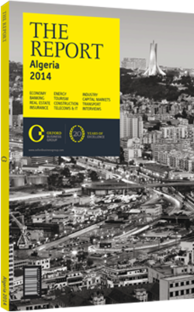OBG talks to Issad Rebrab, CEO, Cevital

Interview: Issad Rebrab
Which industries require particular attention in order to increase value-added production?
ISSAD REBRAB: Algerian industry needs to focus more on vertical integration in the upstream and downstream segments if it is to create more added value. On the upstream side we need to produce sugar cane for sugar extraction and other derivatives. With oil, we need to encourage the production of oleaginous seeds so that crushing can be developed and our imports of raw oil can be reduced. On the downstream side, in the glass industry specifically, efforts were first focused on producing sheet glass. However, we later implemented new techniques and today we are able to meet the local market demand for PVC and aluminium windows.
What are the current constraints to the expansion of the Algerian industrial sector?
REBRAB: There are still several elements that slow the expansion of the industrial sector in Algeria. The problem of access to land is one of them and it remains a significant issue, as land is still expensive and scarce. Investing is also an administrative challenge, as it requires many bureaucratic processes. This poses a problem for a variety of reasons and, most of all, limits the potential for job creation that industrial projects would normally generate. Also, the creation of new industrial operations would reduce the import bill and increase revenues generated by non-hydrocarbons exports.
On a separate note, efforts to encourage consumer credit could contribute to the expansion of the industrial sector. Indeed, even though the level of savings among Algerian households is believed to be high, simplified access to credit would inevitably result in growing local demand for consumer products and improve the quality of locally manufactured goods.
What synergies can be further exploited to develop intra-African trade? ?
REBRAB: Africa needs a more unified legislative framework to facilitate and regulate trade within North and sub-Saharan Africa. Also, the continent as a whole needs to improve in terms of the ability to process its own raw materials so that it can capitalise on value-added production. Trade volumes and intra-regional foreign investment needs to grow significantly.
What sort of challenges do Algerian firms face when investing abroad?
REBRAB: According to the current law, transferring local currency outside of the country is not allowed, which significantly limits the ability of Algerian companies – with the exception of Sonatrach and those public banks who currently hold stakes in foreign financial institutions – to execute direct investments abroad. From our perspective, for example, we have reached a level of maturity in the local market and as a result have begun to identify opportunities for investment abroad, which in turn could have very positive benefits for the Algerian economy. As a result, we are currently discussing with the authorities the relevance of these investments and are sorting through the potential options that could allow us to move forward.
We are hopeful that we can clarify this issue and eventually obtain the authorisations needed to finalise some of our projects abroad. To encourage the industrial sector to climb up the value chain, Algeria must permit the acquisition of industrial actors abroad – where the opportunities are numerous – and in turn allow certain local firms to become proper multinationals.
What can Algeria do to encourage skills transfer and develop a pool of qualified human resources?
REBRAB: In order to improve the transfer of skills and knowledge, and to better develop our labour pool, it is crucial that Algeria rolls out a programme of inter-country cooperation. It goes without saying that we are reliant on the expertise of professionals from other countries – including the neighbouring countries within our region – when they have a proven expertise in a given sector. This is something we should leverage.
You have reached the limit of premium articles you can view for free.
Choose from the options below to purchase print or digital editions of our Reports. You can also purchase a website subscription giving you unlimited access to all of our Reports online for 12 months.
If you have already purchased this Report or have a website subscription, please login to continue.

